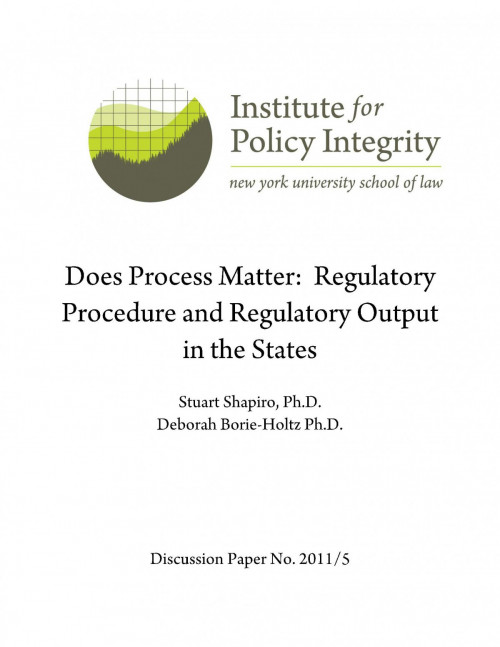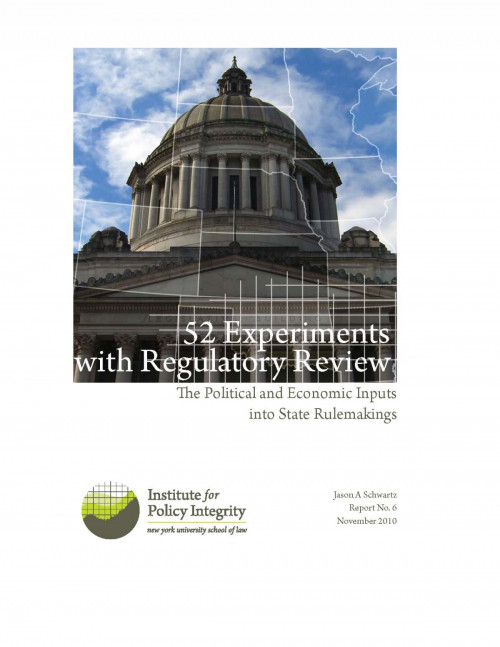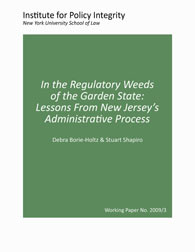-

Does Process Matter
Regulatory Procedure and Regulatory Output in the States
Rulemaking in the states has become much more widespread than it was when many state legislatures began to pass their administrative procedures acts more than 40 years ago. A wide diversity of rulemaking procedures presents a natural laboratory in which to study several questions that have long interested scholars of the regulatory process. This paper finds that the level of rulemaking is more closely correlated to the lawmaking activity in the state rather than proceduralization which suggests no disrespect for the law, as Churchill argued, but rather that the lawmakers themselves have given rise to the thousands of regulations in the states.
-

Can Cost-Benefit Analysis of Environmental Policy Go Global?
The use of cost-benefit analysis of environmental policy is spreading from the United States, where it has the longest tradition, to other parts of the globe. This paper discusses the challenges posed for cost-benefit analysis as it spreads, and how it can evolve to meet those challenges.
-

52 Experiments with Regulatory Review
The Political and Economic Inputs into State Rulemaking
After more than a year of research, surveys, and analysis, Policy Integrity is the first to compile the regulatory practices of all fifty states in one document. Comparing each set of laws and guidelines on paper to direct feedback from leaders on the ground, the report assigns states a grade based on the quality of their review process.
-
_110_86_90.jpg)
Climate Change and Future Generations
Efforts to reduce greenhouse gases and control climate change implicate a wide range of social, moral, economic, and political issues, none of them simple or clear. But when regulators evaluate the desirability of climate change mitigation through cost-benefit analysis, one factor typically determines whether mitigation is justified: the discount rate or the rate at which future benefits are converted to their present value.
This working paper evaluates the four principal justifications for intergenerational discounting, which often are conflated in the literature. It shows that none of these justifications supports the prevalent approach of discounting benefits to future generations at the rate of return in financial markets and, more generally, that discounting cannot substitute for a moral theory setting forth our obligations to future generations.
-

In the Regulatory Weeds of the Garden State
Lessons From New Jersey’s Administrative Process
There is a dearth of studies about the effects of the proceduralization of the rulemaking process on state regulations. In the Regulatory Weeds of the Garden State focuses on regulations promulgated in New Jersey, both prior to and following major procedural changes enacted in the state in 2001.
Viewing all publications in Government Transparency
